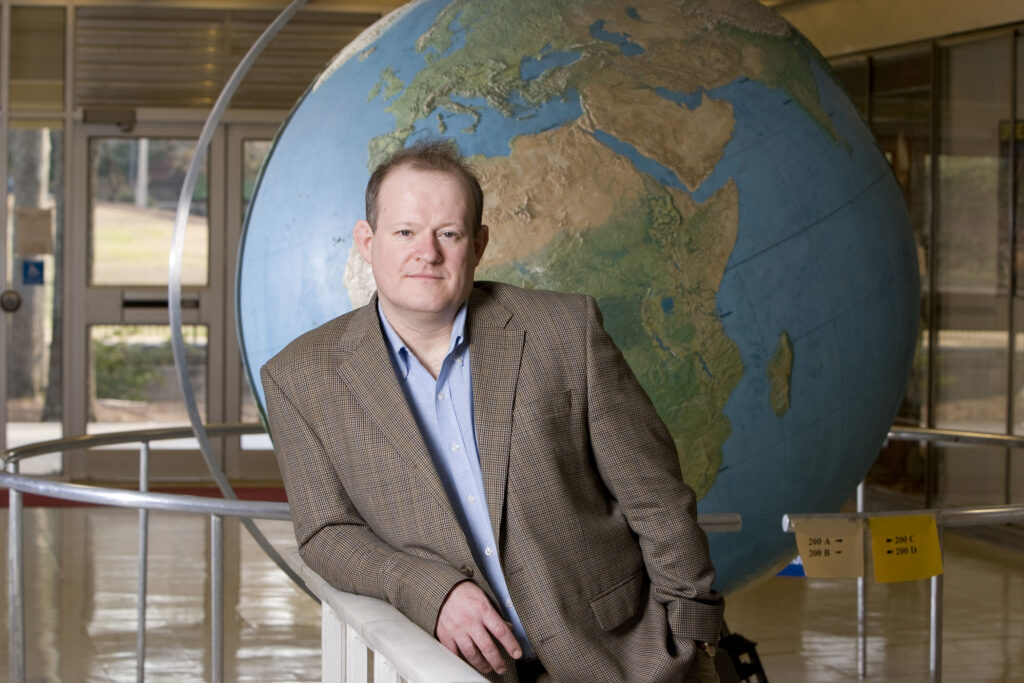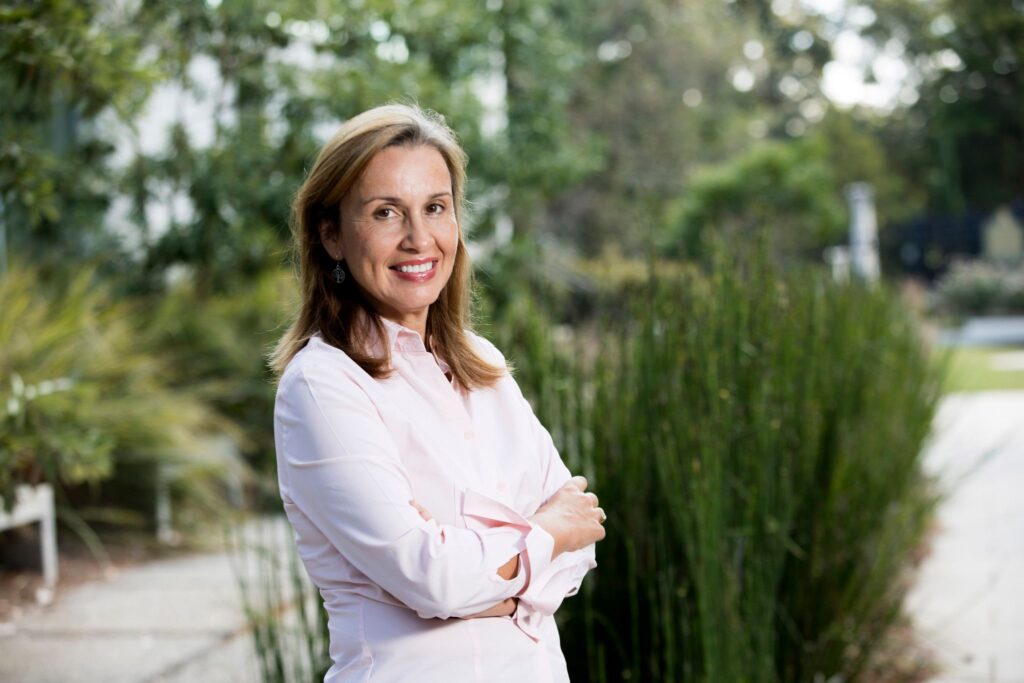Two University of Georgia faculty members are among 171 scientists, writers, scholars and artists honored across 48 fields by the Board of Trustees of the John Simon Guggenheim Memorial Foundation with 2023 Guggenheim Fellowships. Guggenheim Fellowships are awarded annually to those “who have demonstrated exceptional capacity for productive scholarship or exceptional creative ability in the arts.”
Andrew Herod, Distinguished Research Professor of Geography in the Franklin College of Arts and Sciences, and Sonia A. Hirt, dean of the College of Environment and Design where she is also Hughes Professor in Landscape Architecture and Planning, are UGA’s 2023 Guggenheim Fellows.
“I am thrilled to have been selected as a John Simon Guggenheim Memorial Foundation Fellow and to be in the company of so many accomplished individuals across myriad academic and creative fields,” said Herod, an economic geographer who also serves as director of the UGA à Paris Study Abroad Program. “I want to thank the Guggenheim Foundation for this recognition, together with the many people at UGA who have helped me during the course of my career and whose support has enabled me to achieve this honor.”
Herod’s scholarship focuses on the nature and spatial dynamics of economic transformation. His research projects range from exploring how containerization impacted the labor process and the geography of work in the East Coast longshoring industry to how the collapse of Communism affected the organization of work and worker organization in the former Eastern bloc. His most recent book “Labor” explores how globalization and the growth of precarious work are impacting working people’s lives in both “Old Economy” and “New Economy” employment sectors.
Herod’s Guggenheim project is about the U.S. and international poultry industry, and includes a planned book, “Chicken: A Geographical Political Economy.” The book will explore several aspects of the industry’s historical growth and contemporary global development, including how transnational meat corporations are impacting its structure; how growing consumer demand for organic and “ethically raised” meat is reshaping the industry; what international labor migration flows mean for the industry’s ongoing global geographical organization; and the connections between the scientific community and poultry production.
Hirt studies the intersection of society, culture and space to advance understanding of the relationship between cultural values and urban forms, and to create opportunities to make cities more equitable, prosperous and sustainable. Initially trained as an architect in her hometown of Sofia, Bulgaria, she also earned a a master’s and a Ph.D. in urban planning at the University of Michigan. The author of 90 publications, including two award-winning scholarly monographs, with more than 3,000 citations, her work has been supported by fellowships from many organizations including the American Council of Learned Societies, the American Foundation of University Women, the National Endowment for the Humanities, and the Fulbright Program.
“Even in my wildest dreams I have not imagined winning a Guggenheim,” Hirt said. “I have a very long list of people to thank starting with my mom, husband and kids and all my colleagues at the University of Georgia, especially the College of Environment and Design, for their support. It is an incredible honor to be part of the Guggenheim community and an equally great honor to represent UGA.”
Hirt’s Guggenheim Project will explore how ideas of space and time evolved through American history and how they impact the way we design spaces and live in them today. The project will investigate America as a land of plenty, especially in terms of space, including the size of homes, yards, automobiles, gas stations and roads to its sprawling cities. Simultaneously, the work will explore how Americans’ notions of time—and the right way to spend it—stand apart from those in other Western nations.
We work longer hours, take fewer vacations, spend less time socializing in public places and hate waiting, in general, said Hirt. “In sum, Americans tend to live space-rich but time-poor. Why? How did our common notions of time and space emerge?”
With her Guggenheim Fellowship, Hirt will continue work on her sixth book, “America’s Hurry: Making Sense of Time and Space in My Adopted Country.”










